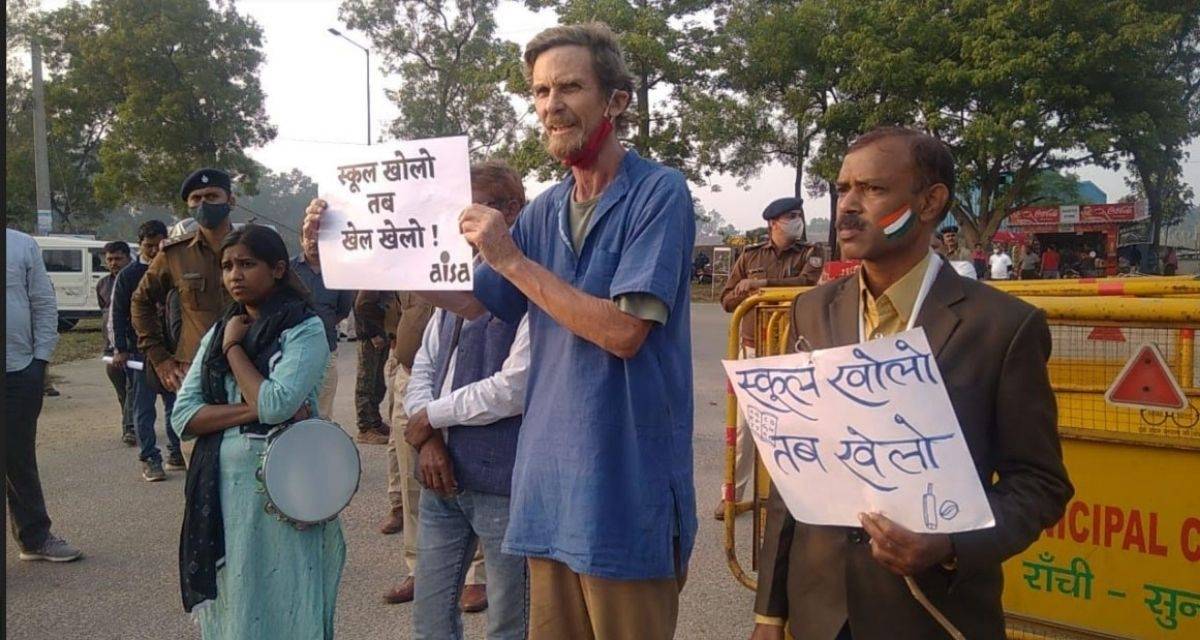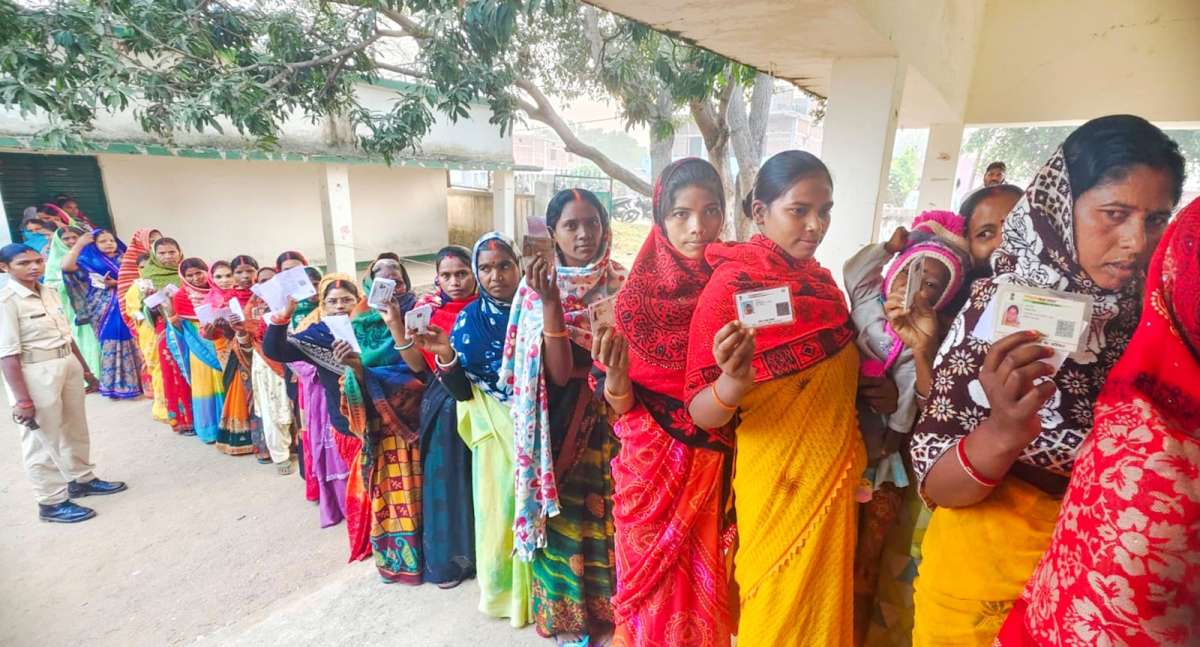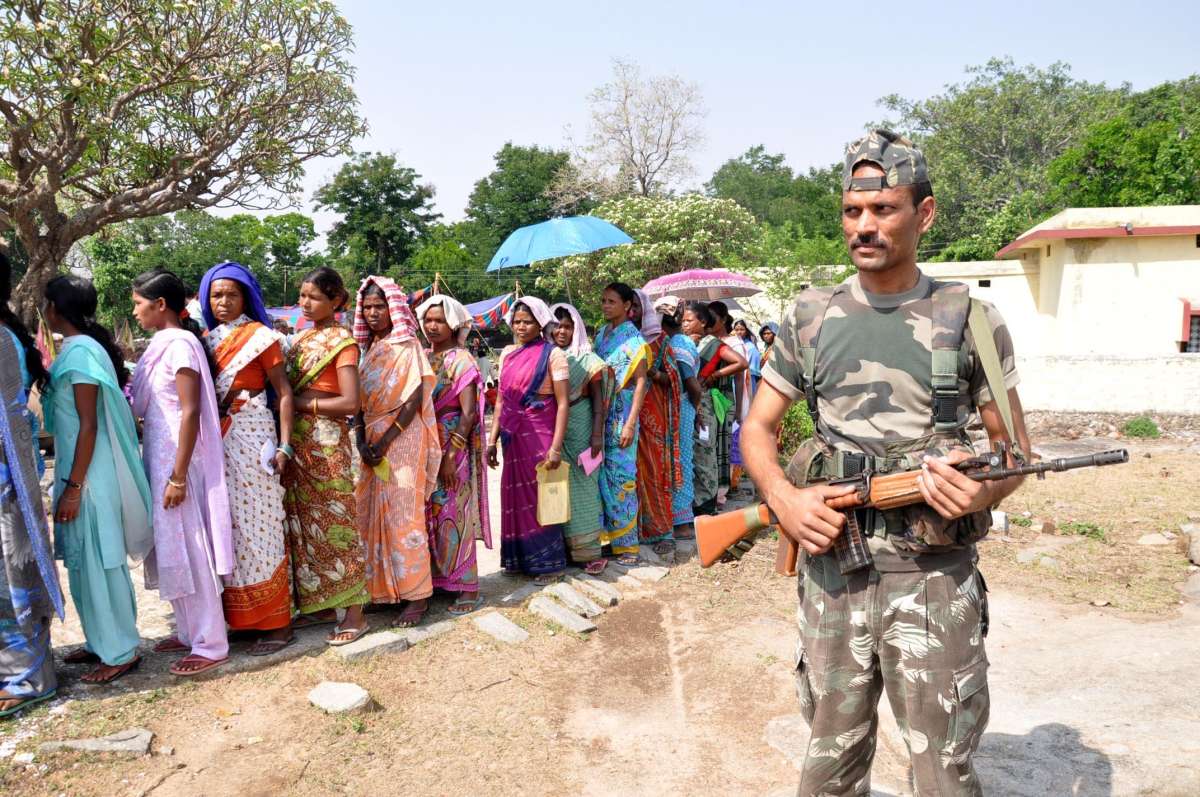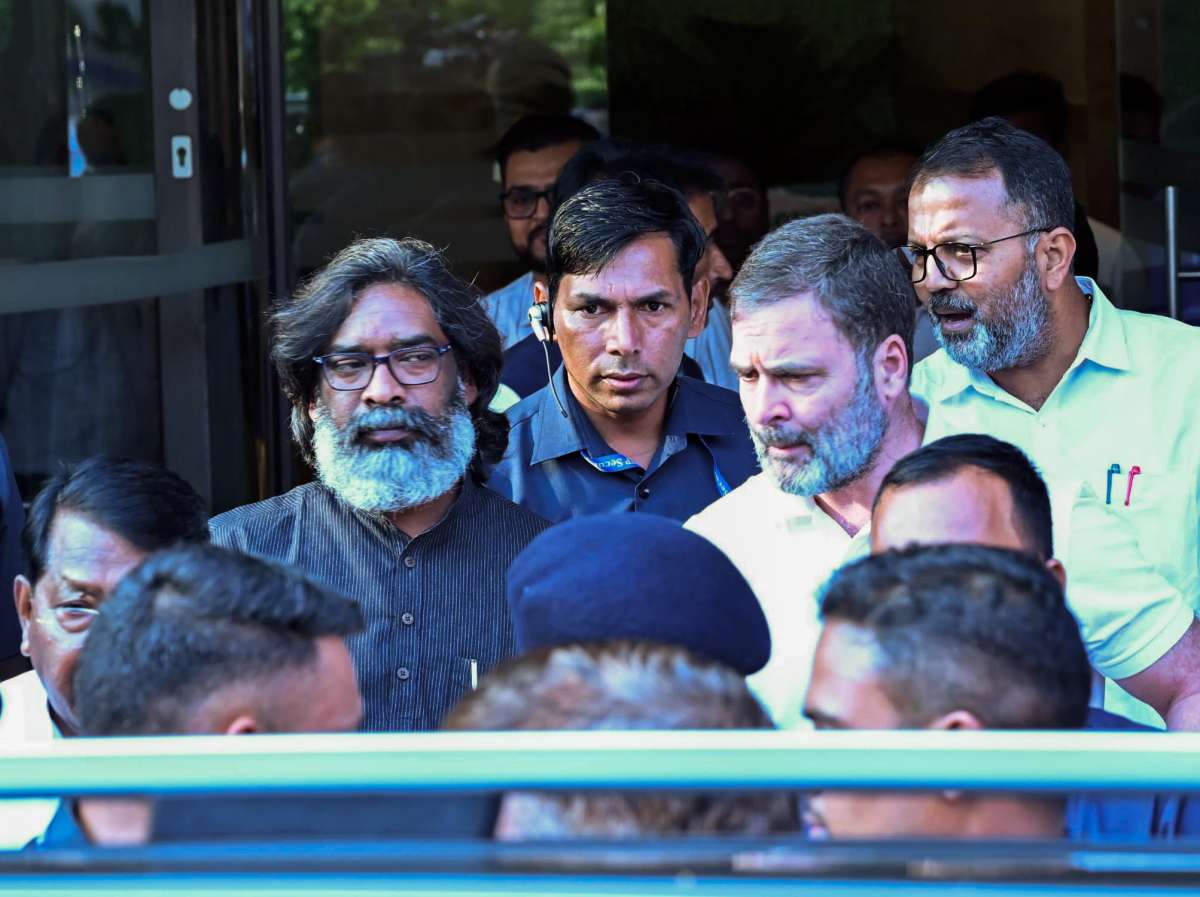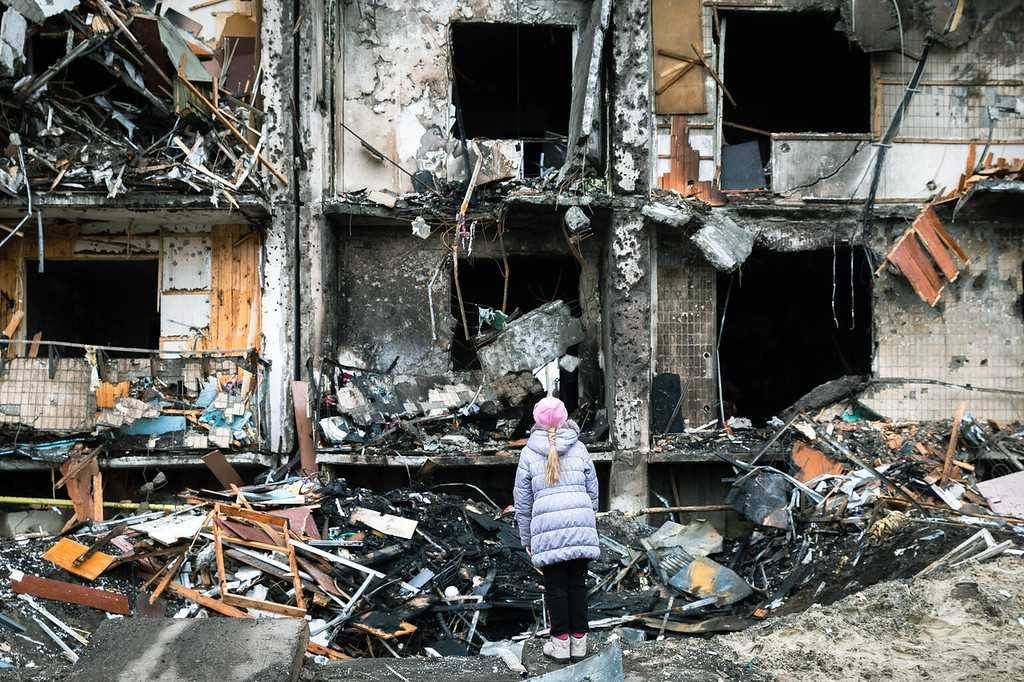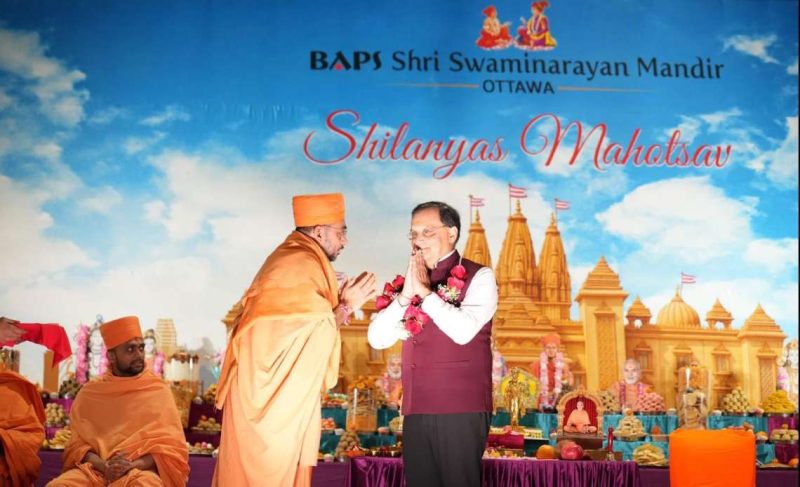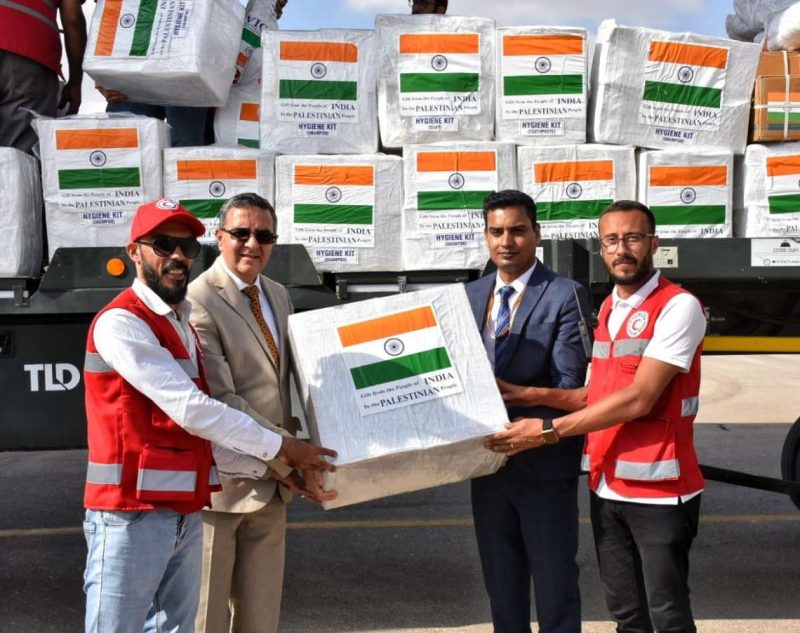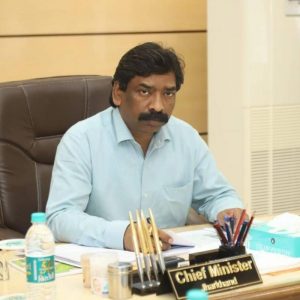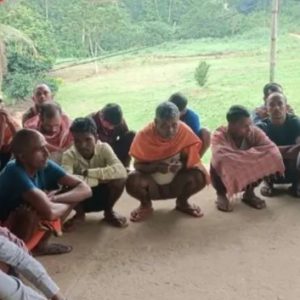The foundation began running the informal school in July 2021, in the rooms of the Sido-Kanhu Murmu Stadium in Bhognadih…reports Asian Lite News
The Covid-19 pandemic has caused an unparalleled upheaval in education across the globe, and the ripples effects are being observed in other social factors. Closer to home, the state of Jharkhand has also seen an alarming increase in young girls being married off at tender ages or being forced to engage in manual labour during the lockdowns since March 2020.
According to the latest data from the National Family Health Survey (NFHS-5), 36.1 per cent of rural girls and 32.2 per cent of total girls in Jharkhand are married before the age of 18. At the same time, only 60.2 per cent of girls in rural areas under the age of six are able to attend school. It is in this bleak scenario that there has been a ray of hope in the lives of Talamani Soren (7) and Sona Murmu (6) of Bhognadih village in the Barhait block of Sahibganj, a remote district of Jharkhand. The girls have been regularly attending an informal school for the past few months, learning to read, write and speak in Hindi and English.
Thanks to the efforts of the Sido-Kanhu Murmu Hul Foundation, these tribal girls are among the 350 children receiving free education amid the pandemic-induced lockdown. Before the revolt of 1857, the tribals in Bhognadih revolted against the British under the leadership of Sido Murmu and his brother Kanu Murmu. This struggle, which locals believe to be the country’s first rebellion against the British, took place in 1855 and has gone down in history as the Santal Hul (‘Hul’ means revolution or rebellion).
Sido and Kanu Murmu have a special place in the socio-political scene of Jharkhand, and the Sido-Kanhu Murmu Hul Foundation has been created by their successors and other youth to honour the duo. The foundation inculcates awareness and appreciation for tribal culture, lifestyle and music while sponsoring the education of children from economically-weak families.
The foundation began running the informal school in July 2021, in the rooms of the Sido-Kanhu Murmu Stadium in Bhognadih. What started with just 10 to 12 children being taught by volunteer teachers from the village, has now reached an impressive 350 students, most of them between five and 12 years. According to Mandal Murmu 25-year-old president of the Sido-Kanhu Murmu Foundation, an equal number of girls and boys belonging to the tribal community attend the school.
Manoj Hansda (28), secretary of the youth-run foundation, and a volunteer teacher himself, explained the circumstances that led to the launch of the school. “The condition of our area is dismal, with the education level being poor among the tribal community. During the lockdown, we didn’t wish the children of the village to go without learning so we decided to run a free school for them.” Hansda adds that all the teachers, who are volunteers from the village working pro bono, have received both their vaccine doses.
Initially, young students Anapa Soren, Anil Soren, Talamani Soren, and Sona Murmu, who only spoke in their mother tongue of Santali, were not comfortable with Hindi.
However, they have been learning Hindi and are now getting used to the language. Mandal Murmu explains, “We have been teaching them to read, write and speak in Hindi so that they are comfortable assimilating into the mainstream later.”
Since the children speak Santali at home, they are encouraged to converse only in Hindi at school. The children are also being introduced to the English language.
Primary class students have been divided into different groups and are also being taught by youth from the village. Apart from Manoj Hansda, Rinki Hansda and BA graduate, Meeru Kisku, also teach the children for free. During summer, classes are held from 3 pm to 5 pm, and in winter, between 8 a.m. and 10 a.m.
Government yet to give green signal
Primary schools in Jharkhand have been closed since March 2020 due to the COVID-19 pandemic. The government reopened schools during August-September 2021 for children from classes 6 to 12, while primary classes remain shut.
Recently, economist and social activist Jean Dreze and his team protested in favour of the opening of primary classes in Jharkhand and sent a memorandum to Chief Minister Hemant Soren. On Human Rights Day December 10, 2021, children and their parents demonstrated at the block office demanding the opening of the school in Manika of Latehar district. Village Swaraj Mazdoor Sangh Manika wrote a letter to the Governor demanding the reopening of the school.
A survey by the Gram Swaraj Mazdoor Sangh found that most children at the primary level could not even read simple sentences at the start of 2021.
Earlier on 19 November 2021, social activists led by Dreze demonstrated outside the JSCA International Stadium in Ranchi during the India-New Zealand T20 cricket match, demanding the opening of primary schools. In a letter to the Chief Minister, they pointed out that while 40,000 people had been allowed to enter the stadium to watch the match, primary schools remained shut despite public health experts advising the reopening of schools across the country.
Bhuneshwar Kewat, secretary of the Jharkhand Nirman Mazdoor Union and a close associate of Dreze, said, “If the schools remain closed for a third year, an entire generation will fail. These children will lose interest in reading and writing and they won’t be able to cope up in the higher classes.”
Upendra Nath Dubey, child rights activist and president of Latehar District Child Welfare Committee, points out, “How can children study online when they do not have the resources? The children’s mid-day meal was also halted. The children of migrant labourers, who returned to their villages due to the Covid-19 lockdown, could not be enrolled anywhere.”
Elaborating on the rise in the number of child marriages during the pandemic, Reshma Singh, co-ordinator of the AALI (Association for Advocacy and Legal Initiative) Trust, explains, “In June 2021 itself, we stopped eight child marriages from taking place. Cases also increased because parents feel weddings during the lockdown will require fewer resources with less people attending.”
On 31 January 2022, after Jean Dreze’s correspondence and pressure from various groups, the Jharkhand government decided to open the schools. As per the decision of the government, schools have been opened in 17 districts from the first grade in 24 districts. Classes ninth and above have been opened in seven districts Ranchi, Deoghar, East Singhbhum, Bokaro, Chatra, Seraikela and Simdega where the rate of corona infection is high.


